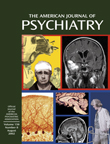Parental Depression: Animal Models of an Adverse Life Event
Abstract
OBJECTIVE: This article reviews findings in preclinical research on the adverse impact of parental depression on the development of offspring, with emphasis on the relevance of this research for the psychiatric care of depressed parents. METHOD: The authors reviewed literature from the last 40 years reporting laboratory animal studies pertaining to the persistent effects of parental stress and parenting deficits on neurobehavioral and neurobiological development in offspring. RESULTS: Animal studies indicate that disrupted parenting produces a persistent, deleterious biobehavioral impact on offspring. Stressors, including maternal separation, variable foraging, and a variety of prenatal maternal challenges, produce offspring behaviors reminiscent of the cardinal features of anxiety and affective disorders. The stress paradigms also uniformly produce persistent hyperresponsivity in hypothalamic-pituitary-adrenal axis activity secondary to hypersecretion of corticotropin-releasing hormone. These findings bear striking similarities to findings for stress-related illnesses in humans, including major depression. CONCLUSIONS: Data from research on animal parenting reinforce the idea that parental mental illness may pose the first adverse life event for a child. A thorough risk-benefit assessment for the psychiatric care of parents of young children must consider the impact on the infant of exposure both to treatment and to parental illness. Preclinical data regarding the risk to offspring posed by untreated parental mental illness should be incorporated into clinical decision making in the treatment of parents with mental illness.



